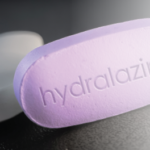 ACR Convergence 2020—2020 is a year that will not soon be forgotten—for many reasons. But even amidst a pandemic, notable advances in clinical rheumatology are a silver lining for the year. During the ACR Convergence 2020 Clinical Year in Review session, Jinoos Yazdany, MD, MPH, Alice Betts Endowed Professor and chief of rheumatology, Zuckerberg San Francisco General Hospital, University of California, San Francisco, discussed the highlights of these past 12 months and the ways in which numerous studies and discoveries will shape treatment changes in years to come.
ACR Convergence 2020—2020 is a year that will not soon be forgotten—for many reasons. But even amidst a pandemic, notable advances in clinical rheumatology are a silver lining for the year. During the ACR Convergence 2020 Clinical Year in Review session, Jinoos Yazdany, MD, MPH, Alice Betts Endowed Professor and chief of rheumatology, Zuckerberg San Francisco General Hospital, University of California, San Francisco, discussed the highlights of these past 12 months and the ways in which numerous studies and discoveries will shape treatment changes in years to come.
TULIP-2 Results
With regard to systemic lupus erythematosus, Dr. Yazdany discussed a phase 3, randomized, controlled trial of anifrolumab, a human monoclonal antibody to type 1 interferon receptor, published this year.1 As readers may recall, a prior study involving anifrolumab (the Treatment of Uncontrolled Lupus via the Interferon pathway [TULIP] 1 study) did not show a significant effect on the primary end point of the Systemic Lupus Erythematosus Responder Index (SRI) 4, which is a composite of changes in three scales.2 This was disappointing because a phase 2 trial of this medication had shown promising results.3
However, in the TULIP 2 study, the authors used the British Isles Lupus Assessment Group (BILAG) based Composite Lupus Assessment (BICLA) as the primary endpoint to evaluate more than 360 patients with moderate or severe active lupus. Patients were randomized to receive anifrolumab or placebo, and those with severe renal or central nervous system involvement were excluded from the study. Whereas SRI-4 requires complete resolution within a particular item to register change and, therefore, does not capture partial improvements, the BICLA can register partial and complete improvement within an organ system, noted the authors.
The TULIP 2 study showed 48% of patients who received a monthly administration of anifrolumab had a BICLA response, compared with 31.5% in the placebo group.1
Dr. Yazdany said these studies indicate that trial endpoints of lupus studies can make a big difference, and it remains challenging to identify which endpoints to use. Also, large trials with years of endpoint scrutiny and planning are needed to identify the optimal treatments for lupus patients.
Practically speaking, the TULIP trials also indicate that—if approved by the U.S. Food & Drug Administration—anifrolumab may become a treatment option for patients with active lupus who do not have severe renal or central nervous system disease.
Tapering Glucocorticoids
Next, Dr. Yazdany discussed the theme of optimizing glucocorticoid dosing and safety in the treatment of rheumatologic diseases.



